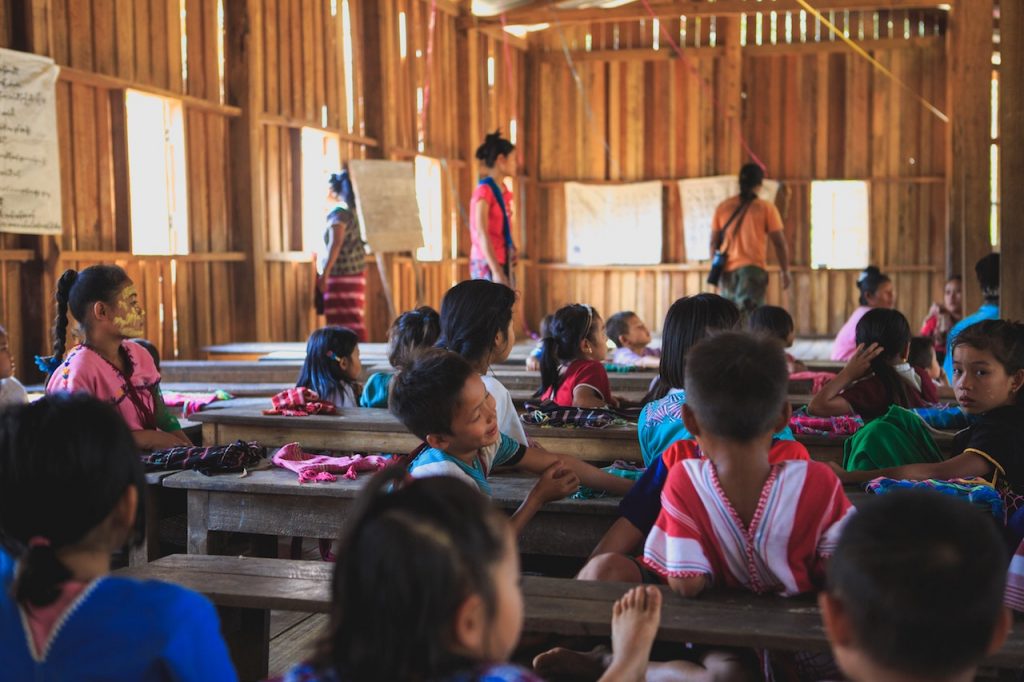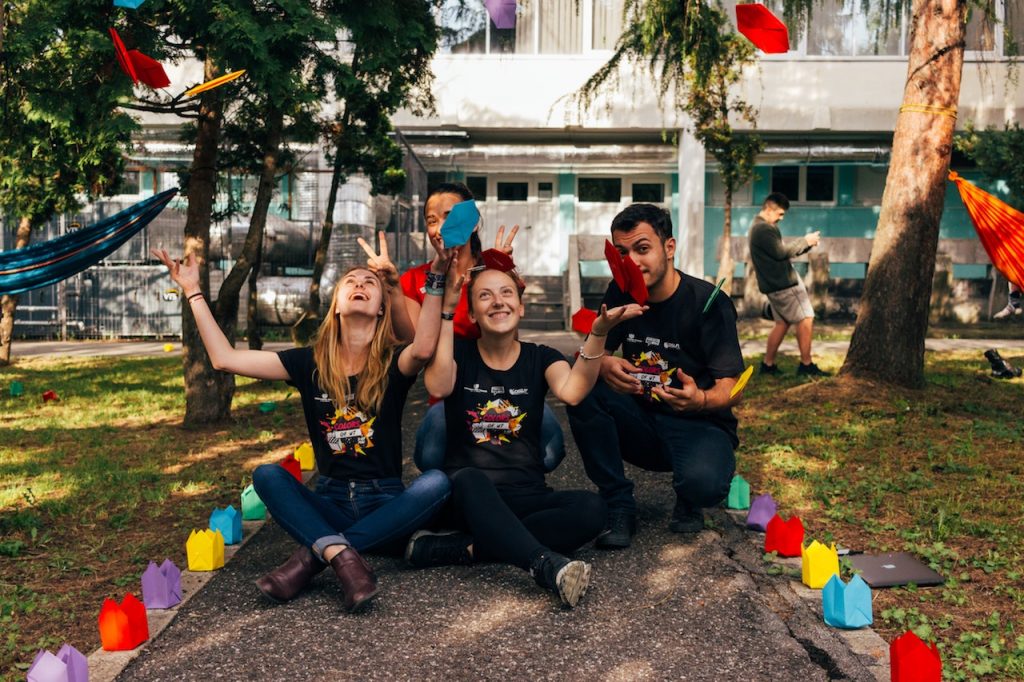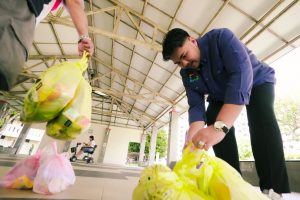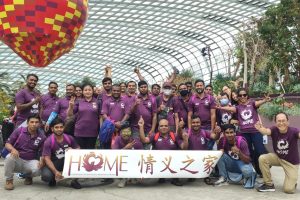Here’s something I’m strangely proud of: I’ve never been on an OCIP (overseas community involvement programme) trip, nor ever wanted to go on one.
Call me selfish, but even during Giving Week, when the media usually highlights several worthwhile causes, I didn’t feel compelled to sign myself up for an OCIP.
While friends in polytechnic and university left Singapore on two-week expeditions to build schools for villagers in Cambodia, help children in Vietnam construct a well, or teach English to the impoverished in yet another third-world country, I remained within my bubble in Singapore.
There were vast benefits of going on an OCIP, as my friends who returned would demonstrate. Even the most unfeeling person would be overflowing with gratitude towards their privilege in Singapore. All of a sudden, they started appreciating the little things like clean water and good food that they had long taken for granted.
Most regaled me with tales of how “villagers with nothing” looked so “happy”, and how they felt that their problems were truly insignificant in the grand scheme of things. In response, I would remind them that sympathising with the plight of a kid in China doesn’t invalidate their own problems.
Perhaps it was for the better that my cynicism fell on deaf ears. They seemed to become entirely new people, content with having done some good during their school holidays.
On the other hand, I reasoned that I was already well aware of my fortune and privilege; I did not need to live in a slum in Phnom Penh to know this.
Yet perhaps the most critical issue I took with OCIPs was that the programmes seemed to treat the poor as nothing more than quaint anecdotes to motivate the privileged to reflect on their lives.

While it might have started with a genuine intention to create awareness of real problems in developing countries, this can quickly manifest in self-serving behaviours, such as befriending poor villagers only to leave them in a week and never see them again.
As the National Geographic argues, “We sell a lie when we make it seem like success comes from changing someone else.”
In 2014, the issue of why Singaporean youth should be sent on field trips in rural countries to learn to appreciate Singapore’s success was raised in Parliament. These “relatively tough field trips” would enable students to enjoy “a beautiful sky full of stars”, “the fresh morning dew”, and “the sound of singing birds”. When they came home, they would hopefully appreciate Singapore’s infrastructure better.
As I read the report, I remember thinking: the lives of the poor are not neatly packaged civics and moral education lessons for privileged Singaporeans to learn gratitude.
Of course it would be easy for those from first-world countries like Singapore to ‘experience’ poverty by parachuting into third-world countries for a few days or weeks. But because Singaporeans can always return to their air-conditioned homes, their time abroad usually involves superficial projects that create more harm than good.
For example, OCIPs might introduce English lessons to villagers or start construction of new buildings, without consideration if these communities have the means to maintain this ‘improved’ state.
Furthermore, framing OCIPs in a way that treats the experience as ‘authentic’ and ‘down to earth’ only romanticises the lives of the poor. Effective charity work entails respecting the complex struggles of beneficiaries, and not painting them with broad, inaccurate stereotypes.

We should start by asking the difficult questions, such as how sustainable and scalable our project is, whether we would require help after we leave the country to follow up, if this help be rendered by villagers who don’t have the necessary skills and education, and whether our project can foster exchange between the local community and external partners who can help.
Where multi-generational poverty is concerned, beneficiaries genuinely require help, no matter how well-meaning its source.
Yes, we may feel “empowered” that we’re “making a difference”, but these ‘good feelings’ are useful only if we harness them to work on sustainable, long-term and broad-based change for these communities. If we simply move on from these ‘good feelings’ after a few months back home, then, as I mentioned earlier, why bother with OCIP in the first place?
In other words, our intentions don’t really matter when embarking on OCIPs.
As it is, it’s apparent that many OCIPs don’t require us to possess the necessary skills and cultural understanding of a country to deal with complications should they arise. As such, projects sometimes need to be abandoned or simplified when the skills needed to keep it going are a fundamental mismatch. This is mostly due to the absence of education about that particular country.
Instead, what truly matters is the impact one leaves after an OCIP. Volunteering to feel good about ourselves might be misguided, but if our actions are still able to benefit the community, the outcome should still be positive.
To ensure we render more effective help, we must understand what different beneficiaries need, instead of assuming a one-size-fits-all solution for anyone we want to help. Simply put, this means giving strategically.
For instance, donating $100 might be an efficient way to make ourselves feel good. But even if this action was self-serving, this money might prove helpful to that particular cause, if the beneficiaries require money more than any other form of help.
Consider working with local NGOs to understand the needs of locals and spend time picking up the local language so we can communicate with locals. Educating ourselves on the larger context also allows us to make our programmes more sustainable, ensuring they carry on even in our absence, and not remain stagnant until the next round of volunteers visits.
Shifting our focus from the individual’s intention to impact also requires us to look beyond the duration spent in the developing country. In this case, teaching a one-off human resource programme to other volunteers over a month would give hundreds the skills to recruit better volunteers. This might be more useful than coming back once every year, just to embark on a new project each time.
To make the process of volunteering more thoughtful, the volunteer conversation must start addressing the “complexities of making an impact”, instead of “marketing the change that happens with good intentions”.

After all, the humanitarian crises that OCIPs hope to address are caused by flawed policies, as well as historical, social, political, and economic conditions.
Most OCIPs are intended to address “inequality, poverty, particular patterns of disease distribution, and various forms of violence”. Yet, when they place the onus on lifting the disenfranchised out of the poverty cycle on individual tourists, instead of governments and policymakers, OCIPs risk reinforcing the mystification of larger forces at play.
To be clear, none of all this suggests that we should abolish OCIPs entirely. These programmes do expose some people to the harsh reality of their privilege, and encourage them to use their advantages for good.
Some people even go on to make a greater impact on the lives of the underprivileged, such as by setting up charities or non-profit organisations, all because one OCIP impacted their lives. But these instances, as we’ve now established, are the exception.
It’s no longer enough to ask ourselves what we hope to gain from OCIPs, who benefits from our help, or if our ‘help’ is even useful to the impoverished communities. We must also go beyond placing undue significance on our individual actions, especially if it reinforces misguided expectations about our impact on entrenched poverty.
OCIPs are only meaningful and effective when they complement long-term policy changes to uplift developing nations. Otherwise we risk creating a culture where we treat the poor like an abstract problem waiting to be solved, and their lives like a mere module we go through in school in order to have a nice résumé.
Once this attitude spills over to our daily lives, we end up back at square one: naively believing that as long as we treat the underprivileged nicely, we will eradicate inequality.
Giving Week 2018 is taking place from 27 November to 5 December. Share your Time, Talent, Treasure and Voice to support the causes and issues you care about at the various activities and events happening islandwide, and discover how businesses, communities, people and non-profits come together to celebrate the spirit of giving. #GivingWeekSG






